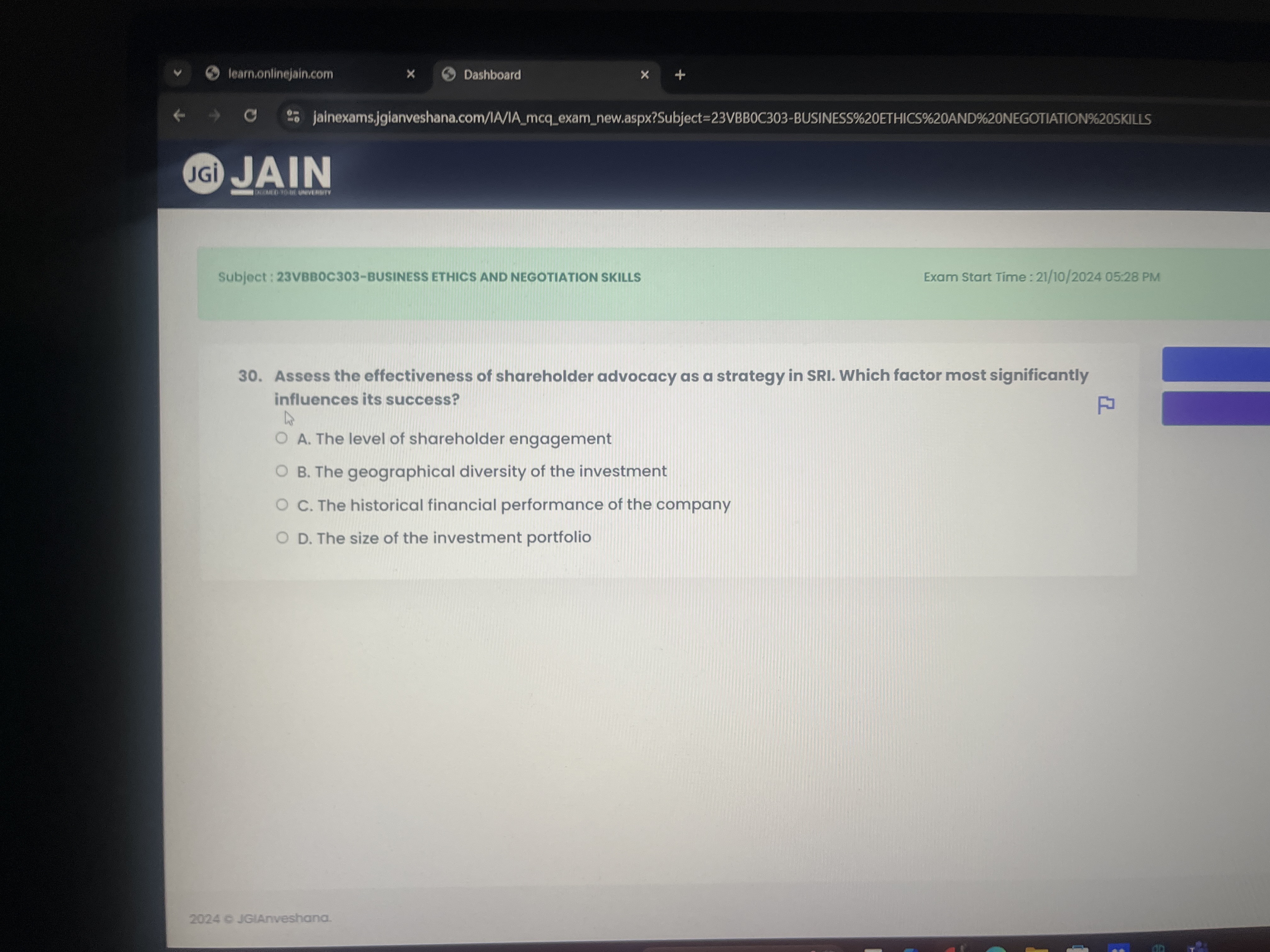Assess the effectiveness of shareholder advocacy as a strategy in SRI. Which factor most significantly influences its success?

Understand the Problem
The question is asking for an assessment of the effectiveness of shareholder advocacy in the context of socially responsible investing (SRI), specifically identifying which factor most significantly influences its success. This involves analyzing various options related to shareholder engagement and investment strategies.
Answer
The level of shareholder engagement.
The factor that most significantly influences the success of shareholder advocacy is the level of shareholder engagement. Effective engagement often leads to changes in corporate policies and practices, especially related to environmental, social, and governance (ESG) issues.
Answer for screen readers
The factor that most significantly influences the success of shareholder advocacy is the level of shareholder engagement. Effective engagement often leads to changes in corporate policies and practices, especially related to environmental, social, and governance (ESG) issues.
More Information
Shareholder advocacy is a powerful tool in SRI, helping drive corporate change by leveraging the influence of shareholders to address ESG issues. Effective engagement requires substantial dialogue and persistence.
Tips
A common mistake is to focus only on quantitative metrics like investment size, rather than qualitative factors such as engagement level, which often plays a more crucial role.
Sources
- What is Shareholder Advocacy & Why is it Important - Green Century - greencentury.com
- The Power of Shareholder Advocacy: Influencing Companies - blog.birchwoodfp.com